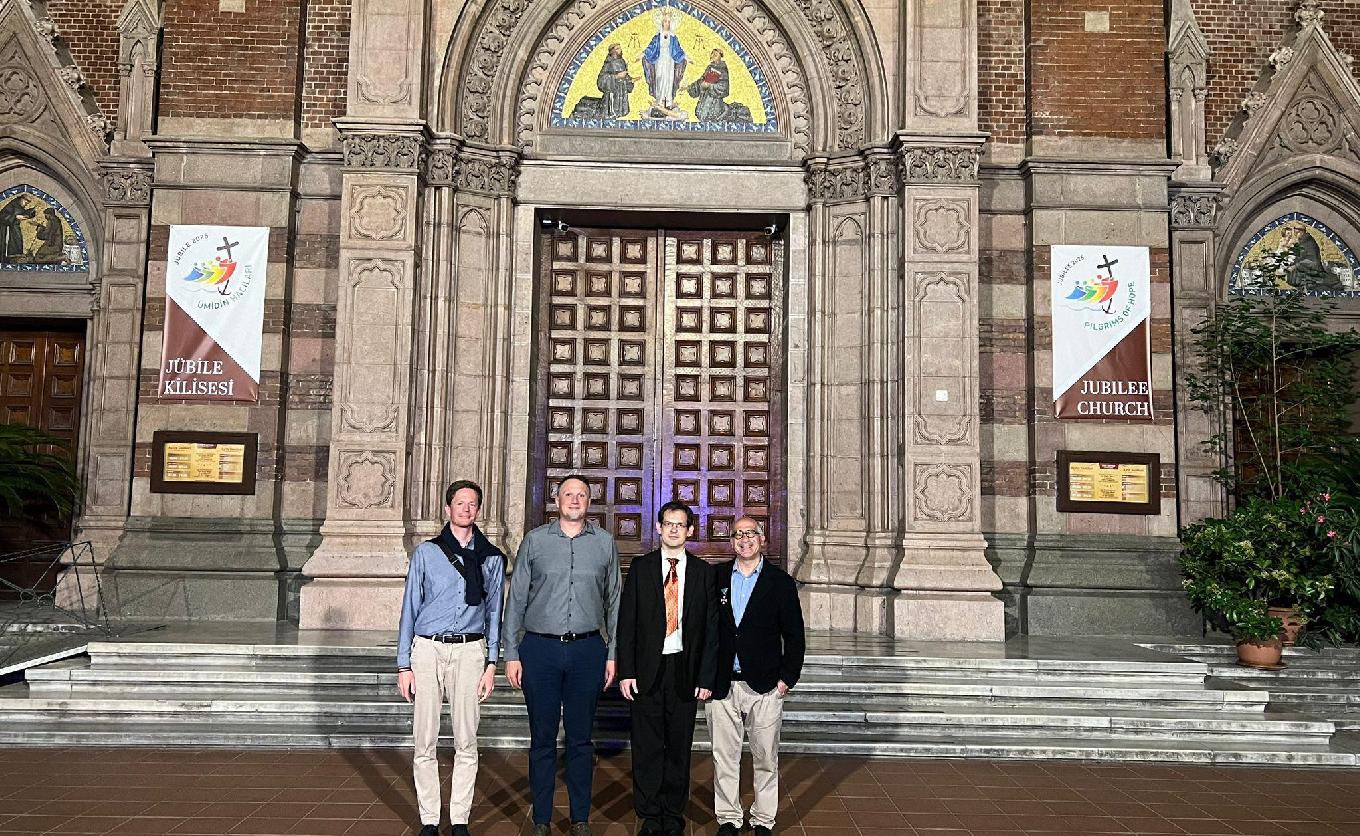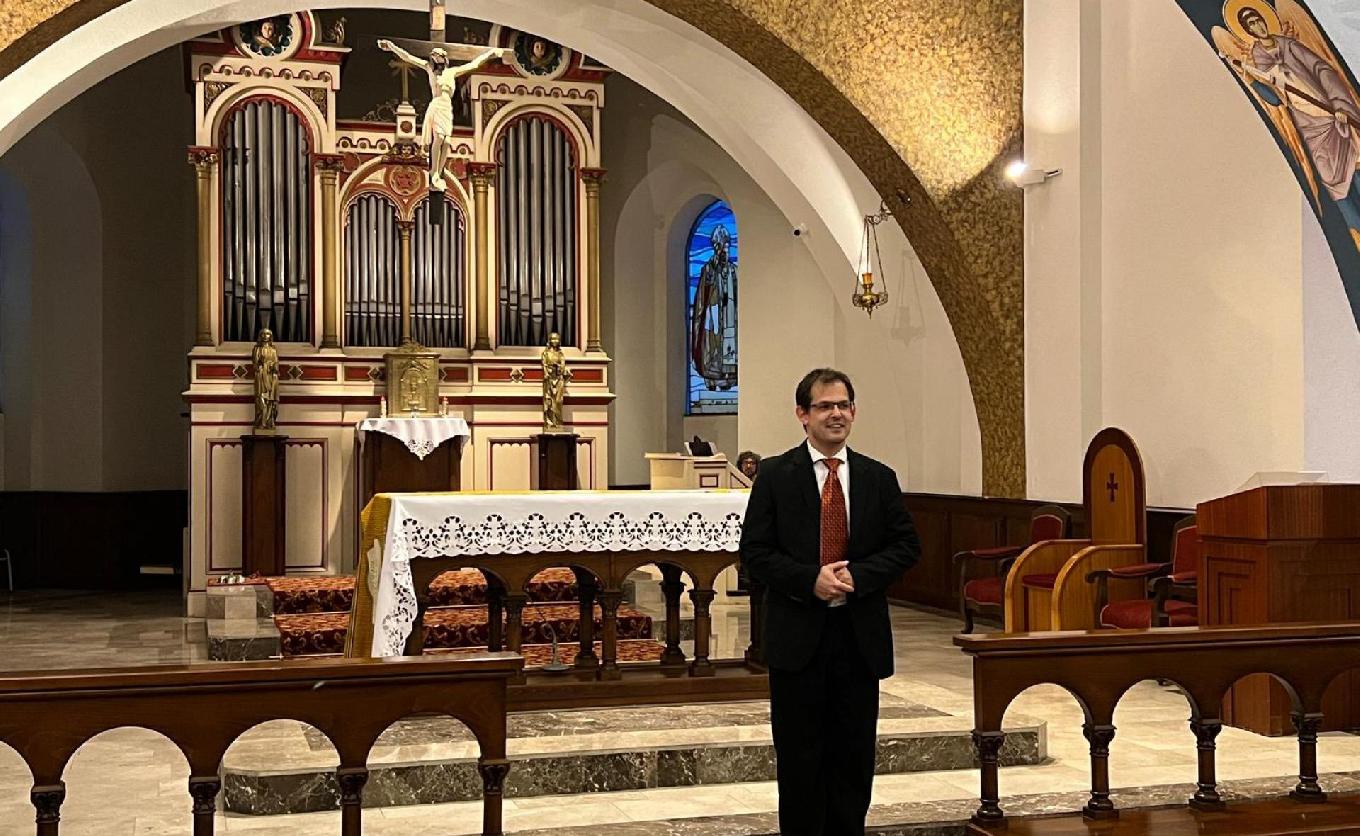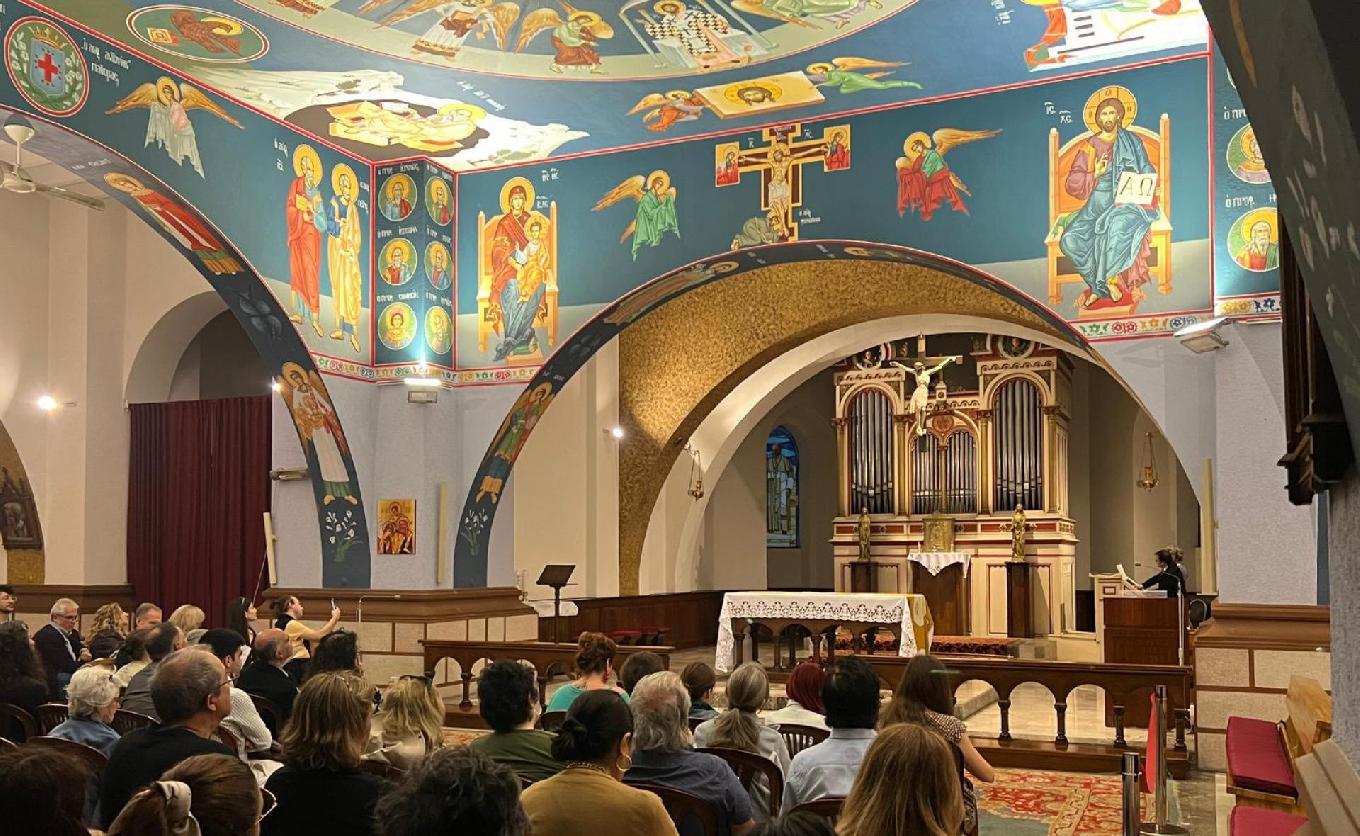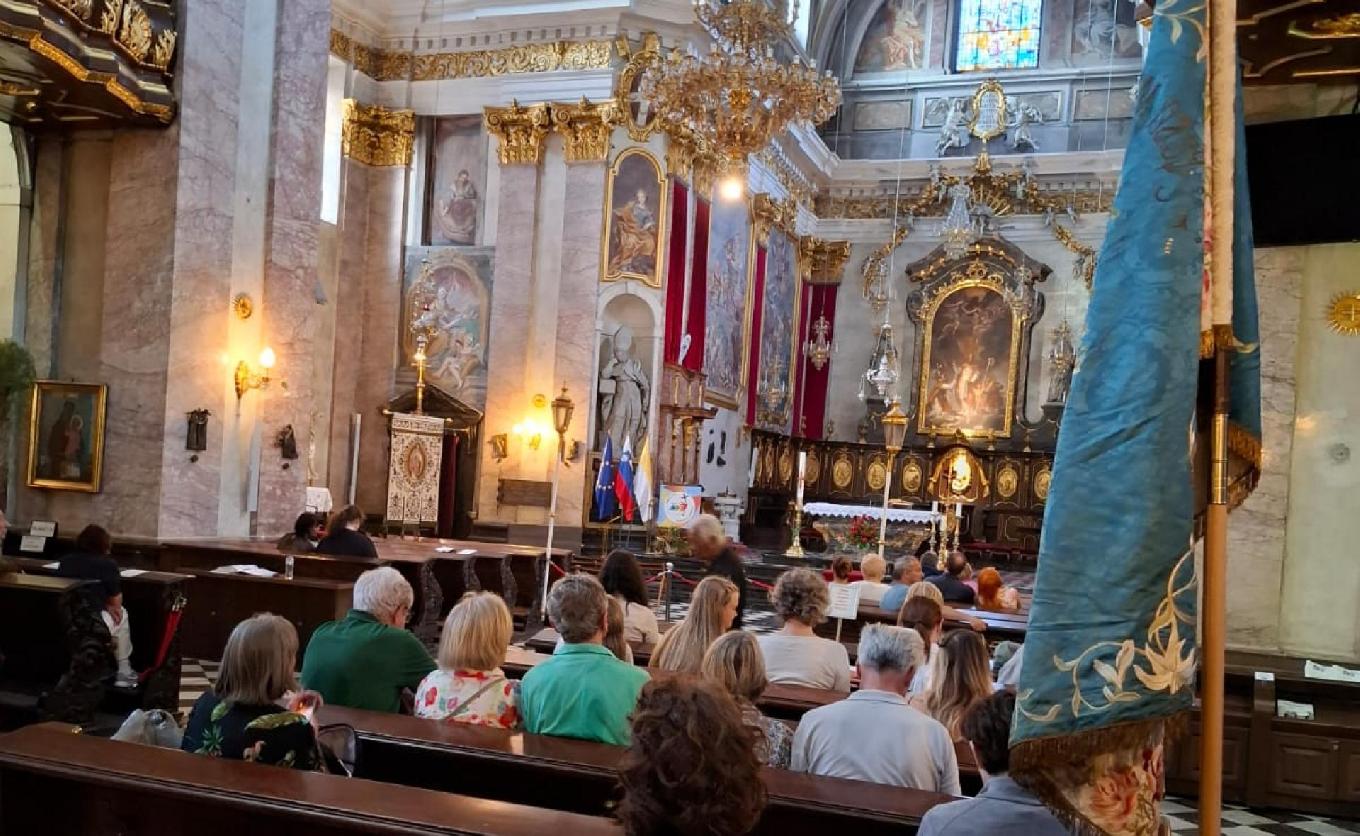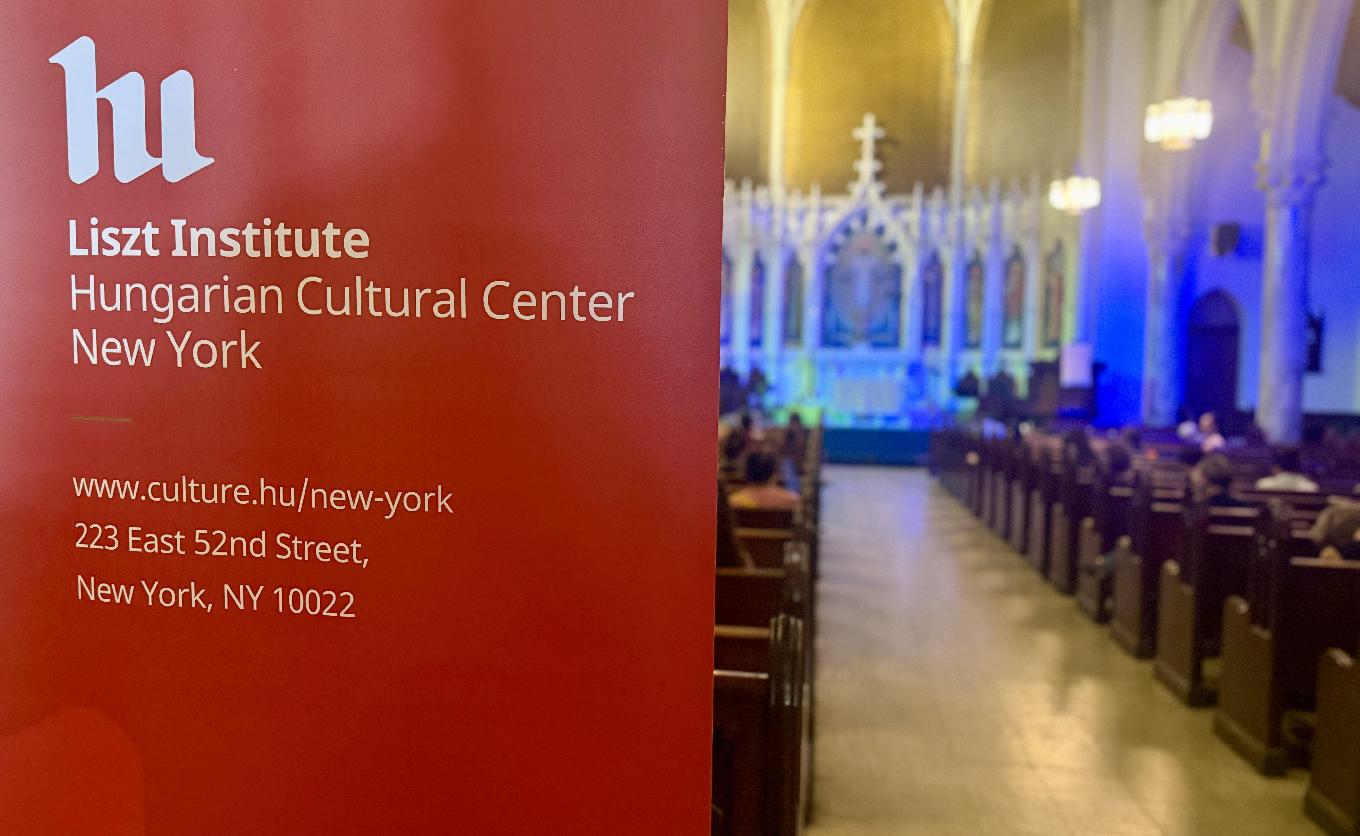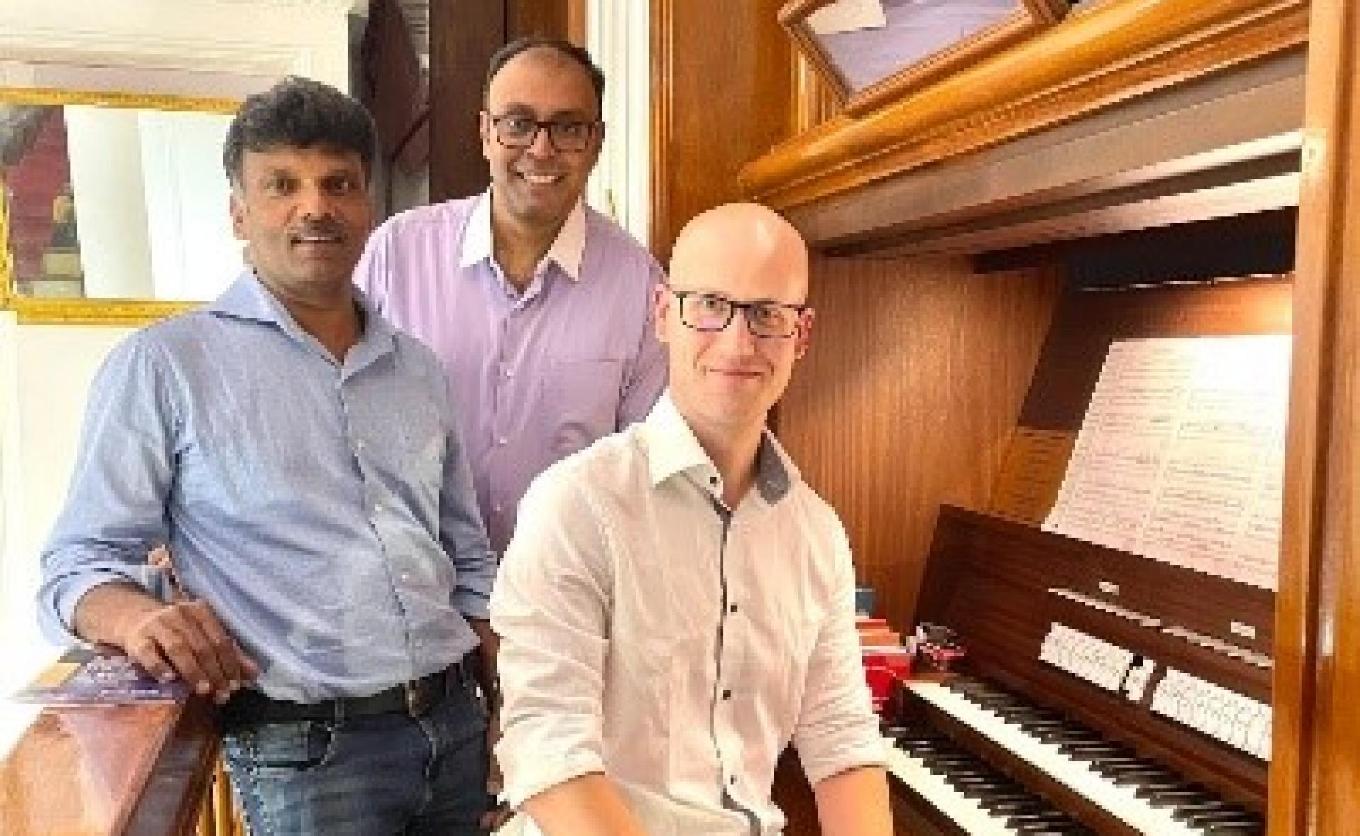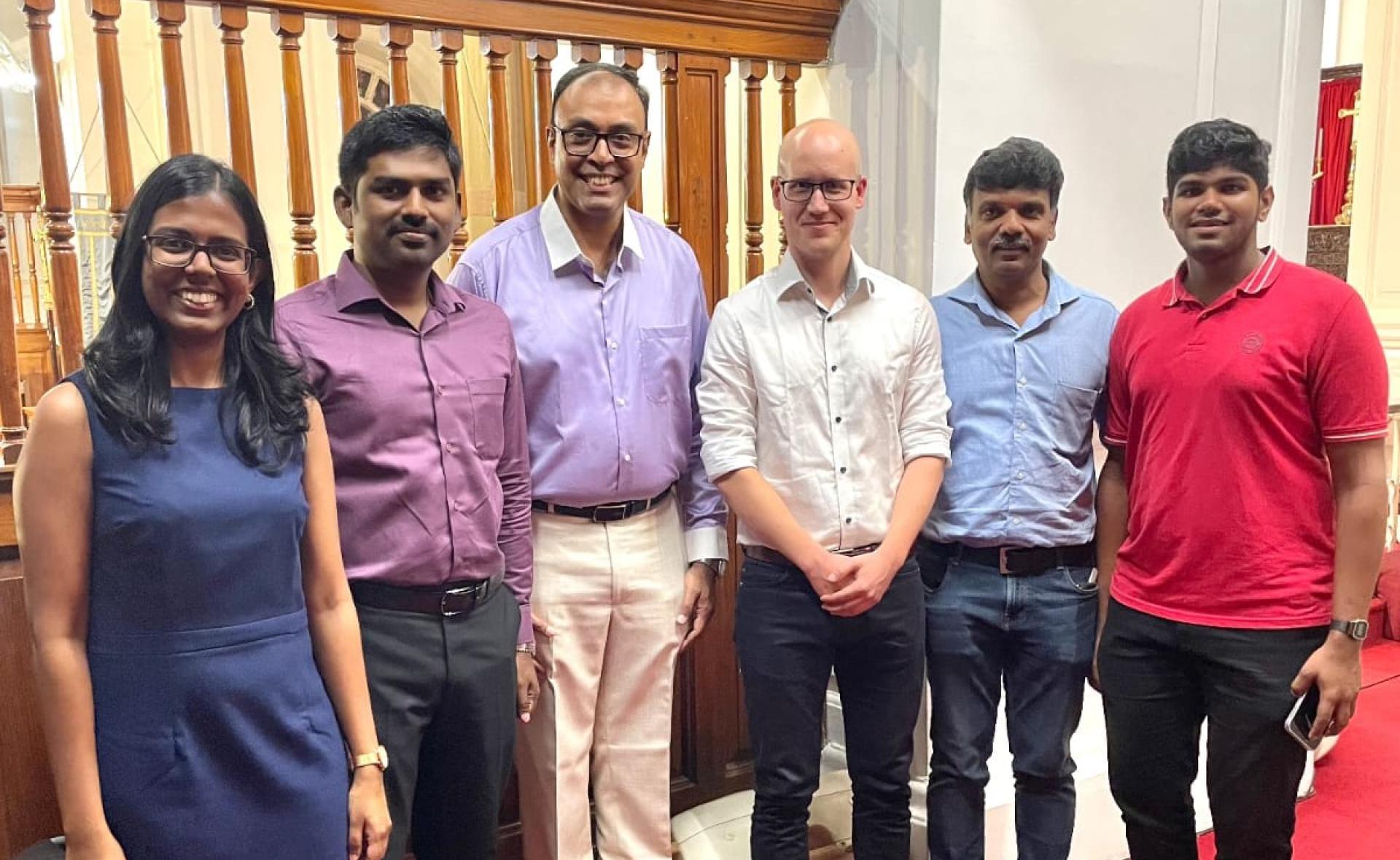
Night of Pipe-organs
The Night of Pipe-organs program series was launched in 2019 by Filharmónia Hungary with the aim of introducing a wider audience to the organ — the "queen of instruments" — which is remarkable in its size, form, and capabilities. This initiative, which originated in Hungary, expanded to an international level in 2024. This year, on June 7, 2025, the event was held simultaneously across 38 locations in 30 countries on 6 continents. Since last year, 26 Liszt Institutes operating in 24 countries around the world have also joined this unique program. In this article, we present the concerts organized by the Hungarian cultural institutes.
At the event organized by the Collegium Hungaricum Vienna, a joint concert by András Lakner-Bognár and György Handl took place at the St. Leopold Parish Church in Gersthof. Alongside works by Johann Sebastian Bach, Franz Liszt, Dezső Antalffy-Zsiross, Tibor Pikéthy, and Léon Boëllmann, the program also featured Toccata festiva, a short fugue by Rezső Ott. Composed specifically for this year’s Night of Pipe-Organs, the piece had its Viennese premiere at this concert.
In Belgium, the Liszt Institute Brussels prepared a special double concert for the occasion. Zsombor Tóth-Vajna performed at the Basilica of Our Lady in Tongeren, while László Attila Almásy played the organ at the Church of Saint Remi in Huy. Prior to the concerts, a doctoral symposium was held at Tongeren’s City Hall.
The Liszt Institute Bucharest participated in the Night of Pipe-Organs for the second time. The concert, held on the Saturday of Pentecost at St. Joseph's Cathedral in Bucharest, attracted a large audience who gathered to hear the renowned organist János Pálúr. The audience’s deep appreciation was evident as they listened attentively to the entire ninety-minute performance despite the late hour, and even requested an encore. The concert featured Toccata fantasia festiva by Rezső Ott — a piece composed especially for the Night of Pipe-Organs — alongside Charles-Marie Widor’s Symphony No. 6, Maurice Duruflé’s Suite, Op. 5, and a Symphonic Improvisation on the 13th-century hymn "Christ Is Risen" by János Pálúr. The artistic director of the Cantus Ecclesiae organ festival — of which this concert was a part — had long wished to invite János Pálúr to Bucharest and had regularly sought the support of the Institute. It was therefore a moment of great joy for Eduard Antal, the festival’s main organizer, that the concert could finally take place this year.
Organized by the Liszt Institute Delhi, organist László Kristófi gave a highly successful concert at St. Mark’s Cathedral in Bangalore, joined by local organists Avinash Mario Grubb and Arnold Reginold. The concert, held on June 7, featured works by Rezső Ott, Joseph Haydn, Johann Sebastian Bach, Felix Mendelssohn, Wolfgang Amadeus Mozart, Franz Liszt, as well as Avinash Mario Grubb. The performance — a true rarity in India — attracted significant attention and was also streamed online. Nearly two hundred people attended the concert in person. László Kristófi was born in Nagyvárad in 1990. In Budapest, he studied at the Liszt Ferenc Academy of Music under László Fassang, János Pálúr, and István Ruppert. In 2015, he continued his studies at the University of Music and Performing Arts Munich in the class of Bernhard Haas. He is currently a doctoral student at the Liszt Ferenc Academy of Music in Budapest.
Organized by the Liszt Institute Helsinki, the concert featured works by renowned composers such as Johann Sebastian Bach and Antonio Vivaldi, as well as Toccata Fantasia Festival by Rezső Ott. The event was held at the Olaus Petri Church, with the contribution of Péter Marosvári, an organist living in Finland.
Organized by the Liszt Institute Istanbul, organist Levente Márton Horváth performed a concert in the early 20th-century neo-Gothic St. Anthony Church, located on the bustling Istiklal Avenue in the Turkish capital. The artist enchanted the audience, and despite the fact that the concert was held on the occasion of the „Festival of Sacrifice”, which was also celebrated with family all over Turkey, the concert was sold out. Thus, Istanbul joined this unique global program series with a worthy performance. The concert was organized with the participation of Mehmet Mestçi, a musician honored with the Hungarian Order of Merit, who has played a key role in promoting Hungarian classical music in Turkey.
In Slovenia, Áron Dóbisz gave organ concerts at St. Nicholas Cathedral in Ljubljana and the Cathedral of Koper, organized by the Liszt Institute Ljubljana. The concerts were highly successful at both venues.
In a joint organization by the Liszt Institute London and Filharmónia Hungary, Brúnó Kaposi performed a concert at the French Protestant Church in Soho. Brúnó Kaposi is the director of sacred music and choirmaster at the Jesuit Church of the Sacred Heart of Jesus in Budapest. He attended the Bartók Béla Secondary School of Music, specializing in piano. He completed his basic organ studies in Germany, as well as his church music training, earning a master's degree in Würzburg under Christoph Bossert. His master’s organ studies took place in Hungary at the Liszt Academy of Music, studying with organists László Fassang and Balázs Szabó.
Organized by the Liszt Institute New York, internationally renowned Hungarian organist and composer Bálint Karosi, along with clarinetist and cultural attaché Noémi Sallai, performed at the Holy Trinity Lutheran Church. The concert series, which has been a huge success in Hungary for years and became international last year, was hosted in the United States for the second time. The evening featured the most virtuosic and exciting organ works, as well as original compositions by Karosi, attracting a large and enthusiastic audience.
In Paris, the Liszt Institute Paris organized a truly special concert at the stunning Saint Pierre de Chaillot Church. The guest of the evening was Dario Dezső, an organist living in Finland.
The 2025 edition of the Night of Pipe-Organs program series held its Chinese stop on June 7 in Shanghai, organized by Filharmónia Hungary with the cooperation of the Liszt Institute Beijing and the Hungarian Consulate General in Shanghai. The concert took place in the neo-Gothic Moore Church, designed by László Hudec, which has a capacity of 800 seats and was filled to capacity. The event was opened by Reverend Jiang Xili, the church’s leader, and Anna Lujza Honecz, director of the Liszt Institute Beijing. Organist Gyula Szilágyi and Mimi Klemettinen, a Finnish organist of Chinese origin, performed both solo and as a duo. Their program featured works by Johann Sebastian Bach, Wolfgang Amadeus Mozart, and Zoltán Gárdonyi.
Organized by the Liszt Institute Prague, a concert was held featuring organist Gábor Szotyori Nagy performing works by prominent composers such as A. Guilmant, C. Debussy, Rezső Ott, István Koloss, J. S. Bach, András Gábor Virágh, and Franz Liszt. The event was realized in cooperation with the Czech Organ Festival and the Ministry of Culture and Innovation.
The Night of Pipe-Organs concert in Italy took place at the Chiesa del Santissimo Nome del Gesù (commonly known as Il Gesù) — one of Rome’s most beautiful churches — organized by the Hungaricum Collegium Rome (widely known as the Hungarian Academy in Rome). The concert featured acclaimed performances by organist Balázs Szabó and baroque flute artist Nóra Kiszty. This was not the first occasion that outstanding Hungarian artists have come to Rome for the Night of Pipe-Organs in cooperation with Filharmónia Hungary. Last year, organist Áron Dóbisz and trumpeter Bence Samodai enchanted audiences in multiple venues around Rome. The event was opened by Dr. Krisztina Lantos, director of the institute, and Father Claudio Pera, rector of the church. A special privilege was that Balázs Szabó was also able to provide organ accompaniment at the papal Pentecost Sunday Mass in St. Peter’s Basilica, attended by hundreds of thousands of faithful.
In Sepsiszentgyörgy, organized by the Liszt Institute Sepsiszentgyörgy, audiences enjoyed a joint concert by organist Adrián László Nagy and flutist Bernadett Nagy at the Christ the King Church. Those who did not attend the pilgrimage in Csíksomlyó but wished to spiritually prepare for the Feast of Pentecost on Pentecost Saturday could do so through this concert by the artist couple, who presented a highly sophisticated repertoire. The program included both classical and contemporary pieces, enriched with flute playing, as well as a work composed specifically for the Night of Pipe-Organs — Rezső Ott’s Fanfare — which was performed at every participating venue that day. Before each piece, organist Adrián László Nagy shared stories about the context of the work’s creation, the composer, or the unique features of the piece.
The Liszt Institute Sofia joined the initiative for the second time this year. The program was included in the Sofia Music Weeks festival to reach a wider audience. Organist Attila Dankos performed the concert at the Bulgaria Concert Hall in Sofia.
The Liszt Institute Seoul participated in the Night of Pipe-Organs event series in 2025 as well. The program not only represented a special cultural occasion but also provided an opportunity to build ecclesiastical diplomatic relations with Korean churches. This year, organist Ádám Tabajdi traveled to South Korea. The highly successful concert was held at the Kyungdong Presbyterian Church, located in the heart of Seoul, where Tabajdi performed classical and Baroque pieces before an audience of several hundred. The highlight of the evening was Liszt’s piece played as an encore, which was met with enthusiastic applause from the local audience. The concert was opened by a welcome speech from István Medvigy, director of the institute, and attended by Ambassador Dr. István Szerdahelyi, key partners of the institute, as well as distinguished diplomatic guests.
The concert, organised by the Liszt Institute in Tallinn, was very well received by an audience of more than 80 people at the Night of the Organs in the Niguliste Museum, which is housed in the former St Nicholas Church, built in the early 13th century in the Gothic style. Estonian organist Aare-Paul Lattik carefully selected the works to evoke different emotions in the audience, but to create a coherent whole. The hour-long programme began with a piece by Alfred Karindi, an Estonian composer of the last century (two movements from Karindi's Organ Sonata No. 3 in F minor (1944), Allegro I, Berceuse II), followed by Rezső Ott's Toccata Fantasia Festiva and then Ferenc Liszt's Evocation à la Chapelle Sixtine. The final part was Henri Éduard Dallier's Electa ut Sol (“5 Evocations pour orgue”), and the programme concluded with Johann Sebastian Bach's Passacaglia & Fugue in C minor (BWV 582). The audience thanked the great musical experience with long applause.
On the occasion of the Night of Pipe-Organs, Anastázia Bednarik gave a highly successful concert at Warsaw’s most important cathedral, the Basilica of St. John the Baptist, organized by the Liszt Institute Warsaw. Despite unfriendly weather and last-minute traffic restrictions, the concert was warmly received by an enthusiastic audience.
On June 7, Ágoston Tóka, the famous organist of the Dohány Street Synagogue in Budapest, gave a successful organ concert at the Church of St. Francis in Split. The event was organized by the Liszt Institute Zagreb with the cooperation of the Filharmonia Hungary. The program featured Josef Rheinberger’s Fantasy Sonata in A-flat major (Op. 65), Gábor Lisznyay Szabó’s Une Szane Tajkef, Zoltán Kodály’s Epigrams in an organ transcription by Gábor Trajtler, as well as EGATOP by Zsolt Gárdonyi and Toccata Fantasia Festiva by Rezső Ott.

